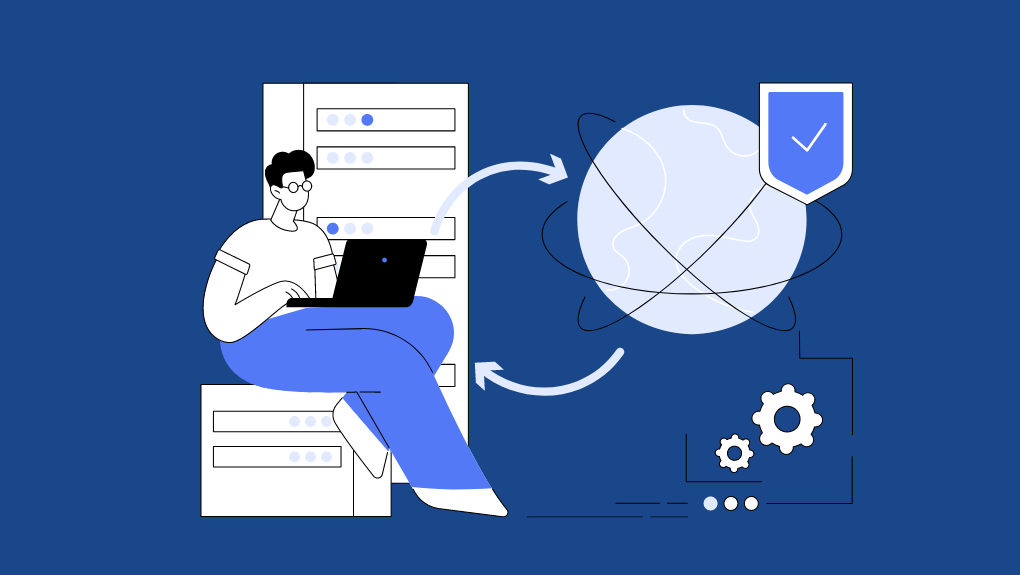Proxy Pioneers: Online Security in the Technological Era
The state of insecurity in the online world continues to deteriorate, with threats becoming more real by the day. Common ones include identity theft, data breaches, and DDoS attacks. As such, both businesses and individuals, alongside proxy pioneers, must learn to navigate these risks if they wish to move forward in the digital world.
Various tools may promote online security, but proxies stand out. They bridge the gap between the internet and your devices, masking any requests routed through them and making it difficult for malicious actors to monitor your online activity. Keep reading as we explore the role of proxies in online security.
Understanding Proxies
Proxies are a bridge between your device and the internet. Once you send a request, the proxy handles it by concealing your IP address. In other words, it forwards the request on your behalf. This fake IP address it provides you with the ability to hide your true identity and location, enhancing anonymity and privacy. Whether you're using a standard proxy or a residential proxy, both help mask your digital footprint and protect sensitive data.
To truly comprehend the role of these tools in revolutionizing online security, let's take a look at some of their most critical benefits below.
1) Enhanced Privacy Protection
This technology safeguards your identity by hiding your IP address. Internet connections channeled through one channel disguise the users' identities. Therefore, it makes it difficult for any bad actors to monitor your online activity. This anonymity is vital in an age that has seen a rise in surveillance, data harvesting, and micro-targeting.
2) Mitigation of Geo-Restrictions
Proxies play a crucial role in bypassing the geo-blockades set by either content providers or governments. They work by rerouting traffic through servers located in different geographical locations, providing access to any barred content. With them, you can access streaming services, social networks, and websites that would otherwise be impossible to use. Moreover, you can surf the internet without fear of encountering any blockades from accessing any type of information or entertainment.
3) Enhanced Security Measures
Privacy protection is not the only benefit of these tools; they also play a crucial role in improving cybersecurity. Proxy servers can serve as a shield. They can prevent users from accessing dangerous sites or downloads containing viruses, logic bombs, or phishing schemes.
4) Load Balancing and Performance Optimization
Proxies are excellent for ensuring network efficiency as they help balance the load of incoming traffic. This load balancing helps avoid server overload and reduces the amount of time a certain application might be unavailable to users. They also improve a system's general functionality. Besides filtering requests and serving as a cache for highly requested content, proxies also lower bandwidth usage and quicken data delivery, benefiting users.
Proxy Types
These tools come in a wide array of configurations for an equally extended number of applications. Here are the most common types:
1. HTTPS Proxies
Occasionally also known as SSL proxies, they are a connection type that encrypts the data transferred between the user and the server to ensure its security. They deal with both HTTP and HTTPS web traffic. An advantage of HTTPS proxies is that they prevent unauthorized people from accessing the information and data shared over the internet. They provide extra protection for activities like online shopping and banking.
2. Residential Proxies
Residential proxies act as middlemen that send connections through IPs allocated by ISPs to homeowners. They employ real residential IP addresses, which enable them to appear as regular users. They are efficient in unlocking content within a particular region. Residential proxies are credible and unlikely to get banned. They are great for web scraping, ad verification, and access to prohibited or restricted websites.
3. Datacenter Proxies
Datacenter proxies have their IPs, but they are not associated with ISPs. Their main advantage is scalability, as you can use them to complete online activities quickly and effectively. They are also cheaper than residential proxies and suitable for instances where you need to perform many requests with high speed and frequency, such as with bots and scraping.
4. SOCKS Proxies
While SOCKS proxies can be very useful, they are different from HTTPS proxies. They are versatile and find excellent use in most applications. With them, you can obtain an unparalleled degree of anonymity and handle massive amounts of traffic. Because of this, they serve best for activities like torrenting. Choosing the right proxy service depends on your specific online security needs, whether it’s for personal browsing, secure data scraping, or bypassing geo-blocks
Conclusion
Proxies are the crucial pioneers of our modern world, where people need anonymity and security against the rising threats on the internet. Every type of proxy has its own strengths that make it convenient, depending on the situation. Knowing their various categories and uses may help you effectively cover your online presence and improve your internet experience.









